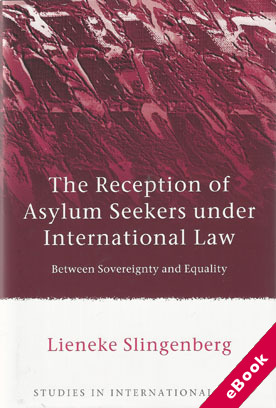
The device(s) you use to access the eBook content must be authorized with an Adobe ID before you download the product otherwise it will fail to register correctly.
For further information see https://www.wildy.com/ebook-formats
Once the order is confirmed an automated e-mail will be sent to you to allow you to download the eBook.
All eBooks are supplied firm sale and cannot be returned. If you believe there is a fault with your eBook then contact us on ebooks@wildy.com and we will help in resolving the issue. This does not affect your statutory rights.
Increasingly, European states are using policy on the reception of asylum seekers as an instrument of immigration control, e.g. by deterring the lodging of asylum applications, preventing integration into their societies and exercising a large degree of control over asylum seekers in order to facilitate expulsion. The European Union is currently engaged in a process of developing minimum conditions for the reception of asylum seekers, as part of a Common European Asylum System.
This book critically examines the outcomes of the negotiation process into these minimum standards in relation to international refugee law, international social security law and international human rights law. It presents a comprehensive analysis of state obligations that stem from these different fields of law with regard to asylum seekers' access to the labour market and social security benefits and compares them to the minimum standards developed in the European Union.
To this end, it offers an in-depth study into the notion of non-discrimination on the basis of nationality in the field of social security and a detailed analysis of recent developments in the case law of the European Court on Human Rights on positive obligations in the socio-economic sphere.
It takes into account both the special characteristics of international legal obligations for states in the socio-economic sphere and the legal consequences of the tentative legal status of asylum seekers. In addition, this book particularly examines how the instrumental use of social policy relates to international law.